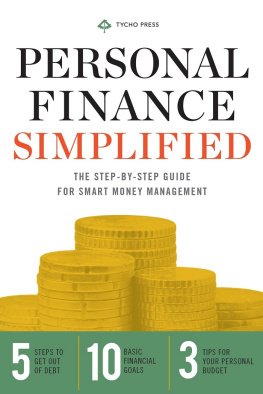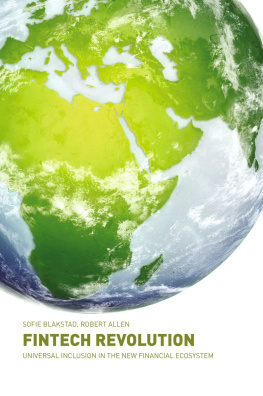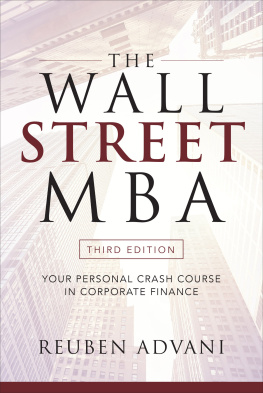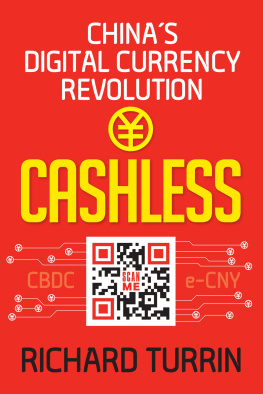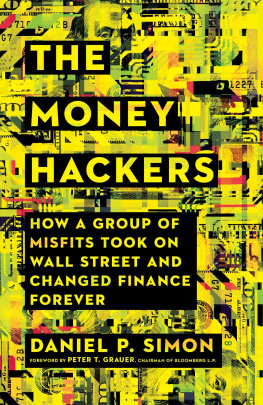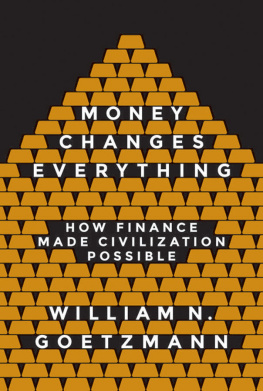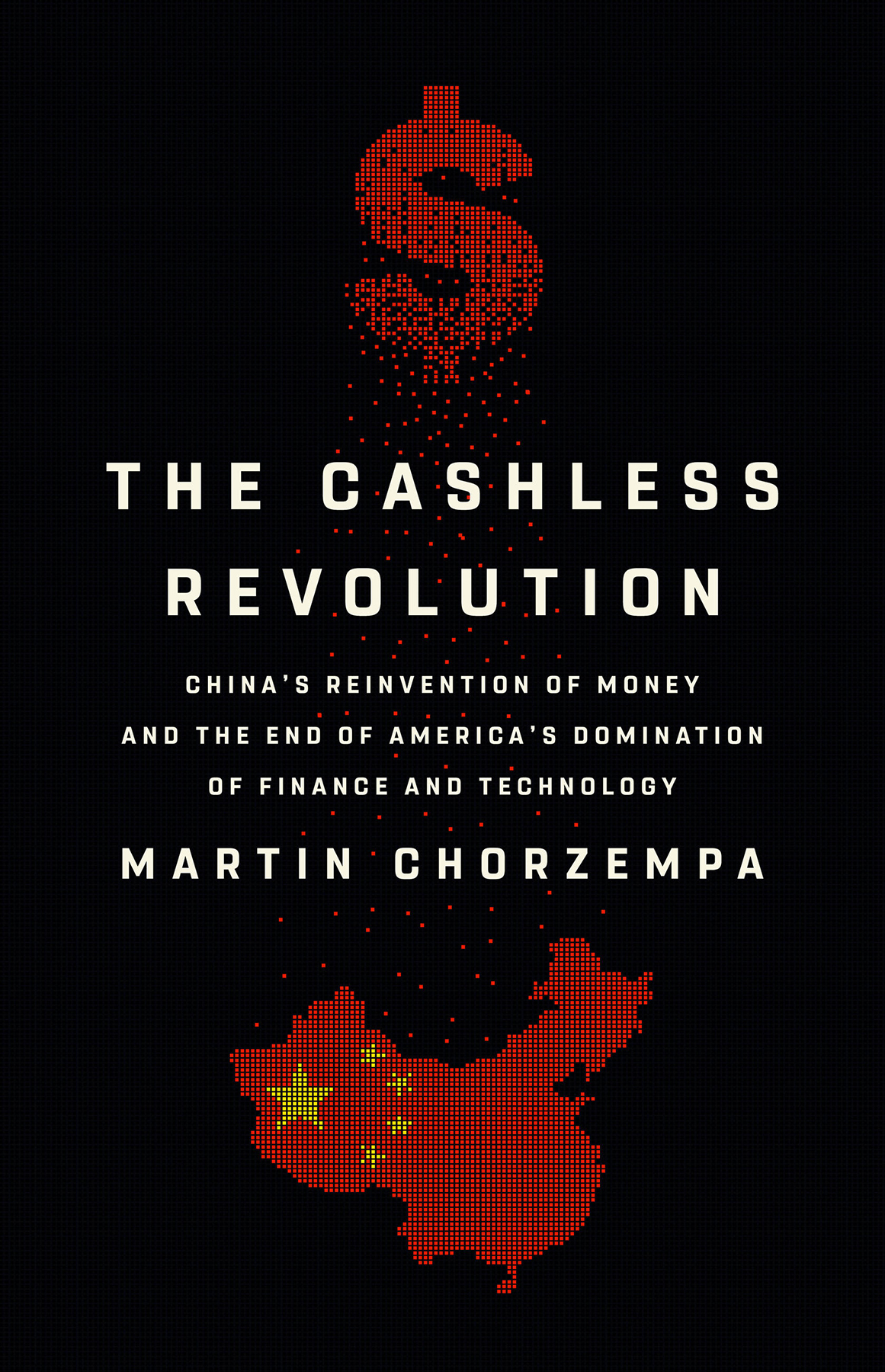China is profoundly important, fintech is profoundly important, so how they come together will have much to do with how the global financial system plays out. The Cashless Revolution is a very valuable and important summary of the relevant issues.
Lawrence H. Summers, Charles W. Eliot University Professor, Harvard University, and former secretary of the treasury
A comprehensive, highly readable look at Chinas cashless revolution: what went right, what went wrong, and how we can learn from Chinas experience as we strive to modernize our own payments system.
Sheila Bair, former chair of the US Federal Deposit Insurance Corporation
In this superb account, Chorzempa chronicles the breakneck speed in the development of the fintechs in China, starting from their humble origins as payment add-ons in e-commerce to all-seeing big techs that later incur the ire of the authorities, all within the space of ten years. Chorzempas sure grasp of the political economy provides much-needed context to understand current developments. The Cashless Revolution is a must-read for any serious observer of digital innovation and of China.
Hyun-Song Shin , Bank for International Settlements
Chorzempa brings us an extraordinary look into the future of money and with it, the future of both global power and daily life. Having taught himself Mandarin and immersing in Chinese life, he tells the incredible story of the rise of Chinas powerhouse fintechstheir reining in by the Chinese government, and the dilemmas now facing all the world in seeking to harness the leveling power of technology while protecting privacy and averting state power on a scale never seen beforeenabled by financial technology. Equal parts business chronicle, social and political analysis, and storytelling, The Cashless Revolution is one of those rare books that opens readers eyes. The world will never look the same.
Jo Ann Barefoot, CEO and founder, Alliance for Innovative Regulation, and former deputy controller of the currency
The Cashless Revolution is a fascinating analysis of how Chinese entrepreneurs, despite setbacks along the way, transformed Chinese finance from a low-tech backwater to the worlds largest and most-advanced market for digital finance.
Nicholas Lardy, author of The State Strikes Back
China is at the forefront of digital financial innovation, from mobile payment to online investment, and from digital lending to central bank digital currency. While rapidly transforming the financial structure, Chinese fintech also created immense new challenges for the policymakers. The Cashless Revolution offers an authoritative analysis of this very dynamic new financial sectorwhat happened, which factors contributed to the dramas, and where it will likely head.
Yping Huang, Peking University
This outstanding book on digital money provides a captivating account of the transition of Chinas financial system from financial repression to big tech-led financial liberalization. Chorzempa masterfully describes the back and forth between Chinas big-tech platforms and its regulators with their shifting attitudes. The possible erosion of peoples privacy carries important lessons for the West.
Markus Brunnermeier, Princeton University
Copyright 2022 by Martin Chorzempa
Cover design by Pete Garceau
Cover copyright 2022 Hachette Book Group, Inc.
Hachette Book Group supports the right to free expression and the value of copyright. The purpose of copyright is to encourage writers and artists to produce the creative works that enrich our culture.
The scanning, uploading, and distribution of this book without permission is a theft of the authors intellectual property. If you would like permission to use material from the book (other than for review purposes), please contact permissions@hbgusa.com. Thank you for your support of the authors rights.
PublicAffairs
Hachette Book Group
1290 Avenue of the Americas, New York, NY 10104
www.publicaffairsbooks.com
@Public_Affairs
First Edition: October 2022
Published by PublicAffairs, an imprint of Perseus Books, LLC, a subsidiary of Hachette Book Group, Inc. The PublicAffairs name and logo is a trademark of the Hachette Book Group.
The Hachette Speakers Bureau provides a wide range of authors for speaking events. To find out more, go to www.hachettespeakersbureau.com or call (866) 376-6591.
The publisher is not responsible for websites (or their content) that are not owned by the publisher.
Library of Congress Cataloging-in-Publication Data
Names: Chorzempa, Martin, author.
Title: The cashless revolution : Chinas reinvention of money and the end of Americas domination in finance and technology / Martin Chorzempa.
Description: First edition | New York, NY : PublicAffairs, [2022] | Includes bibliographical references and index.
Identifiers: LCCN 2022006946 | ISBN 9781541700703 (hardcover) | ISBN 9781541700727 (epub)
Subjects: LCSH: FinanceChina. | FinanceTechnological innovationsChina. | Digital currencyChina. | MoneyChina. | ChinaEconomic conditions.
Classification: LCC HG187.C6 C463 2022 | DDC 332.0951dc23/eng/20220608
LC record available at https://lccn.loc.gov/2022006946
ISBNs: 9781541700703 (hardcover), 9781541700727 (ebook)
E3-20220816-JV-NF-ORI
For Natalia, Rafi, and Henry
T he future of financethe way Wall Street operates and how you manage your personal financesis on the verge of upheaval. And the force underlying the change comes not from usual suspects such as Goldman Sachs, JP Morgan Chase, or Bank of America but China, where finance and technology are being merged into a system that could either be Orwellian or liberating. The changes of this global revolution in finance and technology (fintech) will be just as powerful as those wrought in social media, retailing, and advertising by giants such as Amazon, Facebook, Google, and Twitter, which have overturned how we shop and communicate.
It all started close to two decades ago, when Jack Ma, a former English teacher and founder of Alibaba, took on Chinas backward financial system.
In January 2004, Ma made one of the most consequential decisions in recent financial history, one that would revolutionize Chinas backward financial system and spark the new financial model making waves around the world. Ma was at the World Economic Forum in Davos while his team in Hangzhou was nearly ready to launch Alipay, a payment system for Alibabas online marketplace for selling goods. Few Chinese had credit cards, so Alibaba had to create its own payment system to allow people to pay for what they ordered online. Ma and his team knew Alibaba would need that system to achieve its e-commerce ambition, but neither he nor Chinese officials were sure whether it was legal. A powerful state-owned company had a monopoly on most payments, and there was no procedure to ask the government for permission. While hearing the worlds top CEOs speak about social responsibility, Ma made up his mind to take the risk. In the middle of the night, he called his team and said, Set Alipay in motion immediately, at once, right now. If someone must go to prison for it, Ill go.
Ma is the quintessential Chinese entrepreneur of the twenty-first century, among a group that took huge risks to build what has become the foundation of Chinas prowess in technology. Instead of going to jail, Ma built an empire of companies that was at one point worth more than a trillion dollars, and he accumulated strong influence in the most powerful circles of the Chinese Communist Party. Alipay would be accepted everywhere in China, along with dozens of other countries. Yet in late 2020, after he dared to take on the government with a blistering speech criticizing regulators, the government cut its most famous and popular entrepreneur to size, canceling what would have been the worlds largest initial public offering (IPO), that of Mas fintech giant Ant Group. Ma suddenly disappeared from public view, sparking rumors that he had finally been locked up, while the government hit Chinese technology companies with a wave of regulation that wiped a trillion dollars from their wealth. What happened that could bring such a reversal of fortunes?


